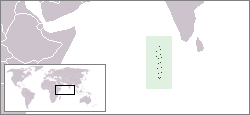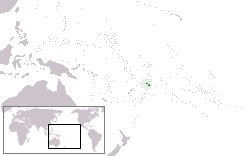The Brazilian resolution was presented to the Economic and Social Council of the United Nations in 2003. The resolution covered human rights and sexual orientation. [1] It came under the Commission on Human Rights, fifty-ninth session, item 17 on the agenda.
Discussion of the resolution was postponed in 2004 because it was felt that it would not be passed. A formal UN declaration on sexual orientation and gender identity was discussed in the General Assembly on 18 December 2008.
The draft resolution was backed by Austria, Belgium, Brazil, Canada, Czech Republic, Denmark, Finland, France, Germany, Greece, Ireland, Italy, Liechtenstein, Luxembourg, Netherlands, Norway, Portugal, Spain, Sweden and the United Kingdom.
The resolution reaffirmed the Universal Declaration of Human Rights, the International Covenant on Economic, Social and Cultural Rights, the International Covenant on Civil and Political Rights, the International Convention on the Elimination of All Forms of Racial Discrimination, the Convention on the Elimination of All Forms of Discrimination against Women, the Convention against Torture and Other Cruel, Inhuman or Degrading Treatment or Punishment and the Convention on the Rights of the Child. It affirmed the equal and inalienable rights of all people, that the Universal Declaration of Human Rights affirms the principle of the inadmissibility of discrimination, and that human rights education is a key to changing attitudes and behaviour and to promoting respect for diversity in societies.
The resolution featured the following six statements [2] [3]

The Universal Declaration of Human Rights (UDHR) is an international document adopted by the United Nations General Assembly that enshrines the rights and freedoms of all human beings. Drafted by a UN committee chaired by Eleanor Roosevelt, it was accepted by the General Assembly as Resolution 217 during its third session on 10 December 1948 at the Palais de Chaillot in Paris, France. Of the 58 members of the United Nations at the time, 48 voted in favour, none against, eight abstained, and two did not vote.
The United Nations Commission on Human Rights (UNCHR) was a functional commission within the overall framework of the United Nations from 1946 until it was replaced by the United Nations Human Rights Council in 2006. It was a subsidiary body of the UN Economic and Social Council (ECOSOC), and was also assisted in its work by the Office of the United Nations High Commissioner for Human Rights (UNOHCHR). It was the UN's principal mechanism and international forum concerned with the promotion and protection of human rights.

The Commission on the Status of Women is a functional commission of the United Nations Economic and Social Council (ECOSOC), one of the principal organs of the United Nations. CSW has been described as the UN organ promoting gender equality and the empowerment of women. Every year, representatives of member states gather at United Nations Headquarters in New York to evaluate progress on gender equality, identify challenges, set global standards and formulate concrete policies to promote gender equality and advancement of women worldwide. In April 2017, ECOSOC elected 13 new members to CSW for a four-year term 2018–2022. One of the new members is Saudi Arabia, which has been criticised for its treatment of women.

The Fourth World Conference on Women: Action for Equality, Development and Peace was the name given for a conference convened by the United Nations during 4–15 September 1995 in Beijing, China.
The Vienna Declaration and Programme of Action (VDPA) is a human rights declaration adopted by consensus at the World Conference on Human Rights on 25 June 1993 in Vienna, Austria. The position of United Nations High Commissioner for Human Rights was recommended by this Declaration and subsequently created by General Assembly Resolution 48/141.

Human rights are largely respected in Switzerland, one of Europe's oldest democracies. Switzerland is often at or near the top in international rankings of civil liberties and political rights observance. Switzerland places human rights at the core of the nation's value system, as represented in its Federal Constitution. As described in its FDFA's Foreign Policy Strategy 2016-2019, the promotion of peace, mutual respect, equality and non-discrimination are central to the country's foreign relations.

The Declaration of Montreal on Lesbian, Gay, Bisexual, and Transgender Human Rights is a document adopted in Montreal, Quebec, Canada, on July 29, 2006, by the International Conference on LGBT Human Rights which formed part of the first World Outgames. The Declaration outlines a number of rights and freedoms pertaining to LGBT and intersex people that it is proposed be universally guaranteed. It encompasses all aspects of human rights, from the guarantee of fundamental freedoms to the prevention of discrimination against LGBT people in healthcare, education and immigration. The Declaration also addresses various issues that impinge on the global promotion of LGBT rights and intersex human rights. Intended as a starting point in listing the demands of the international LGBT movement, it will ultimately be submitted to the United Nations.

Discussions of LGBT rights at the United Nations have included resolutions and joint statements in the United Nations General Assembly and the United Nations Human Rights Council (UNHRC), attention to the expert-led human rights mechanisms, as well as by the UN Agencies.

The First Optional Protocol to the International Covenant on Civil and Political Rights is an international treaty establishing an individual complaint mechanism for the International Covenant on Civil and Political Rights (ICCPR). It was adopted by the UN General Assembly on 16 December 1966, and entered into force on 23 March 1976. As of July 2024, it had 116 state parties and 35 signatories. Three of the ratifying states have denounced the protocol.

Lesbian, gay, bisexual, and transgender (LGBTQ) people are generally discriminated against in the Maldives.

The Yogyakarta Principles is a document about human rights in the areas of sexual orientation and gender identity that was published as the outcome of an international meeting of human rights groups in Yogyakarta, Indonesia, in November 2006. The principles were supplemented and expanded in 2017 to include new grounds of gender expression and sex characteristics and a number of new principles. However, the Principles have never been accepted by the United Nations (UN) and the attempt to make gender identity and sexual orientation new categories of non-discrimination has been repeatedly rejected by the General Assembly, the UN Human Rights Council and other UN bodies.
The Declaration on the Elimination of Violence Against Women was adopted without a vote by the United Nations General Assembly in the 48/104 resolution of 20 December 1993. Contained within it is the recognition of "the urgent need for the universal application to women of the rights and principles with regard to equality, security, liberty, integrity and dignity of all human beings". It recalls and embodies the same rights and principles as those enshrined in such instruments as the Universal Declaration of Human Rights, and Articles 1 and 2 provide the most widely used definition of violence against women.

Lesbian, gay, bisexual, and transgender (LGBT) people in Samoa face legal challenges not faced by non-LGBT residents. Sexual contact between men is illegal, punishable by up to seven years’ imprisonment, but the law is not enforced.

Fiji is an island nation in Melanesia in the South Pacific Ocean with a population of approximately 849,000. It is made up of Fijians, Indo-Fijians, Europeans, Chinese, other Pacific islanders, and people of mixed racial descent. Fiji has been in a state of political unrest since their independence from Britain in 1970.
The right to sexuality incorporates the right to express one's sexuality and to be free from discrimination on the grounds of sexual orientation. Although it is equally applicable to heterosexuality, it also encompasses human rights of people of diverse sexual orientations, including lesbian, gay, asexual and bisexual people, and the protection of those rights. the inalienable nature of rights belonging to every person by virtue of being human.

The International Convention on the Elimination of All Forms of Racial Discrimination (ICERD) is a United Nations convention. A third-generation human rights instrument, the Convention commits its members to the elimination of racial discrimination and the promotion of understanding among all races. The Convention also requires its parties to criminalize hate speech and criminalize membership in racist organizations.

Portugal is generally considered as successful in upholding the civil liberties and protecting the human rights of its citizens. Portugal has proved to be determined in promoting and respecting human rights at an international and national level. The country's minister of Justice as of September 2018, Francisca Van Dunem, said that Portugal has had "a good track record" on human rights but violations still do persist.
Human rights in Norway protect the fundamental rights of all persons within the Kingdom of Norway. These rights are safeguarded by Chapter E of the Constitution of Norway or Kongeriket Norges Grunnlov, as well as the ratification of various international treaties facilitated by the United Nations. The country maintains a dedicated commitment to human rights and was the second country to ratify the European Convention on Human Rights.
The Declaration on the Rights of Peasants is an UNGA resolution on human rights with "universal understanding", adopted by the United Nations in 2018. The resolution was passed by a vote of 121-8, with 54 members abstaining.